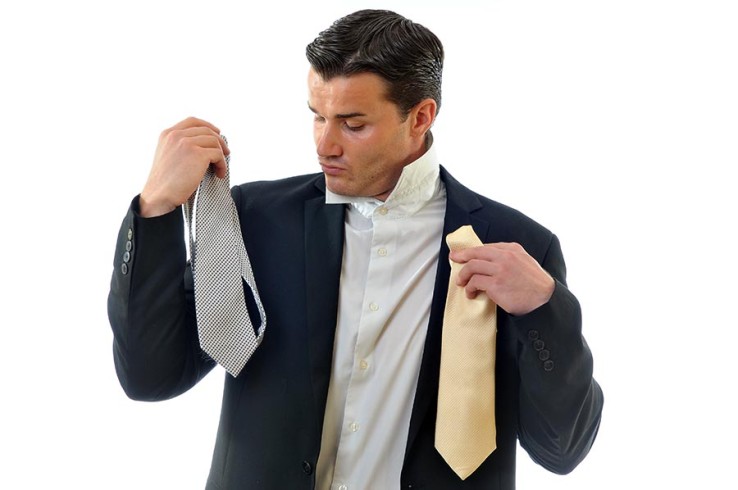Dressing for the job interview
Congratulations! The company that had the opening for the position you applied for wants you to come in for an interview!
Now it’s time to prepare. You’ve learned about the company history and current mission statement, read up on any news regarding the company, prepared responses for any questions the interviewer might ask, and even practised in front of the mirror how you would look from the interviewer’s point of view. Miss anything?
Oh, yes! What will you be wearing?

Dressing correctly for the job interview is important.
This point cannot be overlooked, as it presents the type of image you will portray to your co-workers, your immediate supervisor and those above him/her, and especially the customers and vendors that deal with the company. If you are dressed inappropriately for the interview, you are dressed inappropriately for your regular work-day and for those people mentioned that you will be dealing with.
Don’t know what to wear for the interview, or are somewhat unsure? There’s nothing wrong in asking about the company dress code. In fact, asking demonstrates professionalism and respect for the company, and also shows that you are serious about the position. If you are uncomfortable about asking or cannot ask someone about the dress code, scope out the reception area any time before the day of the interview and take notes of the dress code of the employees there.
If you are unable to do either of the above, you should dress like you are ready to start on day one, and this is especially important for trades positions like landscaping, construction or factory assembly lines where you might be asked to prove your skills and abilities. For any office position be it retail, finance, or executive positions, even if the dress code is “business casual”, consider the following paragraphs when planning your interview wardrobe.
Make sure your suit is clean and pressed. Never wear a t-shirt or anything see-through (particularly blouses for the women). The shirt or blouse should be clean, free of wrinkles and have no flamboyant patterns or loud colours that draw too much attention. Avoid any attire that shows a trendy style, particularly one that is long past and could present you as dated rather than with the times.
Wear a belt that is not frayed or peeling, and with an appropriate belt buckle for office wear.
Never show up wearing jeans or shorts, even “business shorts” worn in humid climates. Wear (for both men and women) dress pants that are clean and pressed, with no loose threads or fraying pockets or seams. While men should obviously never wear a skirt, women can wear a skirt provided it is not a provocative mini-skirt or in a state of disrepair.
Wear appropriate footwear: no running shoes, boots, sandals, or slippers. For the women, avoid the excessively high heels. Make sure your shoes are polished and free of any dirt marks or scuffs. Your soles should have no holes or other tears, so resole them at a shoemaker if necessary or choose another pair of shoes to wear.
For the men, wear a tie that is clean, with a colour or pattern appropriate for the workplace culture, and not too long (the tip of the tie should just touch the top of the belt buckle). For the women, a scarf is acceptable provided it conveys a serious professional attitude.

Here are a few examples on how to dress for the interview.
Jewelry should be kept to an absolute minimum. Do not wear any neck chains over a blouse or shirt, including religious icons such as a cross or Star of David. Men should avoid wearing bracelets, and women should never wear too many bracelets that could clang or rattle during the interview. Regarding earrings, it is advisable for the men to remove them; women should wear only a single pair of earrings that are not over-sized or make clanging or rattling noises. Wearing a wedding band is acceptable provided it is not distracting or draws too much attention away from the rest of you.
For the women, avoid excessively long nails or the use of nail-polish patterning or color that make them the first thing noticed and remain noticed throughout the interview. Men should avoid wearing any nail polish and keep the nails trimmed to an appropriate length. For both genders, nails should be free of dirt.
Tattoos should be covered up, especially those that are inappropriate due to graphic imagery.
Regarding facial make-up and piercings, men should never wear make-up, while women should avoid wearing excessive or garish make-up. Facial piercings should be removed since they are not considered professional office wear in nearly all cases.
As a final point, even if you are wearing a winning wardrobe for your interview, remember to bath or shower, brush your teeth (especially before an interview if you just eaten or drank something that stains them), use mouthwash if needed, avoid perfumes or deodorants that are overpowering or offensive to others, and never smoke any time before the interview.
Good luck with your interview!



Comments